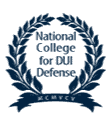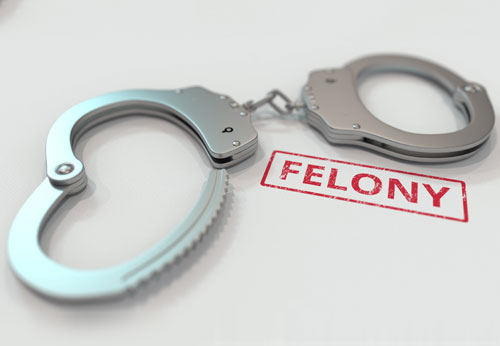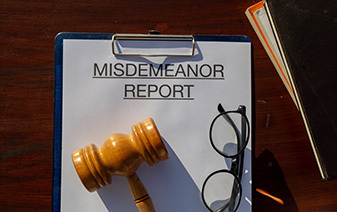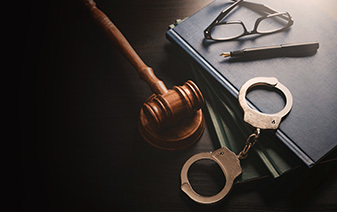View Our Resources
CALL ANY OF MY 3 OFFICES
Connecticut DUI Defense Lawyers
If you’re facing DUI charges in Connecticut for a Connecticut DUI, I offer the personalized attention of a small firm with the proven results of a larger practice. I have access to some of the best expert witnesses in the field of Connecticut DUI Defense. With extensive experience and an aggressive defense approach, I am committed to securing the best possible outcome for your case. I shall guide you through the legal process with calmness and reassurance, answer all of your questions and I shall always be available to talk with you regarding your case. I proudly serve the Connecticut community with offices in New London, Pomfret/Danielson, and Norwich. Let me guide you through the legal process with compassion and expertise. Contact me today for a free office.
Call me at any of my 3 Offices:
Pomfret/Danielson Area Office — (860) 963-7441
Norwich Office — (860) 823-1291
New London Office — (860) 447-3690
Pulled Over For DUI In Connecticut?
Defend Yourself With The Help Of An Experienced Attorney
Key Steps to Take When Stopped for Drunk Driving
If you’ve been stopped for drunk driving, your actions during the encounter can significantly impact whether you’re arrested or convicted. It’s essential to understand your rights and responsibilities at this moment.
- Provide Only Required Information: When approached by law enforcement, you can provide three things: your driver’s license, proof of insurance, and vehicle registration. Do not answer any additional questions. However, most people cannot do this as they feel intimidated by the police and do not stand on their constitutional rights against self-incrimination. Officers may try to gather evidence to establish probable cause for a DUI arrest. They will ask you to perform certain physical tests called the Standard Field Sobriety Tests (SFST) invented by the National Highway Traffic Safety Administration (NHTSA). Politely inform the officer that you decline to answer further questions and that you wish to speak with your lawyer before providing any additional information. The inevitable consequence may be that they arrest you. However, if you choose to answer questions do not lie because that is a criminal offense. This issue is complicated and really requires a more in-depth analysis of the facts of your case.
- Refuse Field Sobriety Tests: You have the right to refuse the Standard Field Sobriety Tests (SFST), and it’s advisable to do so. These tests are often subjective and can be used against you, even if you are not impaired.
- Understand Your Rights Regarding Breath, Urine or Blood Tests: The DMV has an Implied Consent Rule, which originates with the concept that driving is a privilege and not a right. DMV rules and regulations are civil in nature. So, when driving in CT and you are pulled over for a DUI you impliedly consent to taking a breath, blood or urine test either of which is the choice of the police officer. A Breath, Urine or Blood Test can be refused. The result could be a driver’s license suspension and having to drive with an Ignition Interlock Device (IID); however, you may have a suspension hearing to refute material aspects of your case that can result in a license suspension. Again, these issues require a conference on the matter. You should contact me, a DUI Attorney before you do anything, even if arrested. Know your legal rights!
By understanding and asserting your rights during a DUI stop, you can better protect yourself legally. Remember, the most important step is to consult with an experienced DUI attorney who can guide you through the legal process. So, when arrested the police will allow you to call an attorney. Call me at any of the following numbers:
Pomfret/Danielson Area Office — (860) 963-7441
Norwich Office — (860) 823-1291
New London Office — (860) 447-3690
What Qualifies as a DUI in Connecticut?
Wondering if you’re legally able to drive after having a few drinks? It’s a situation many people find themselves in, and understanding DUI laws in Connecticut is crucial to avoiding serious consequences.
In Connecticut, and under DUI Laws “a person commits the offense of operating a motor vehicle while under the influence of intoxicating liquor or any drug or both if such person operates a motor vehicle
(1) while under the influence of intoxicating liquor or any drug or both, or
(2) while such person has an elevated blood alcohol content. For the purposes of this section, “elevated blood alcohol content” means a ratio of alcohol in the blood of such person that is eight-hundredths of one per cent or more of alcohol, by weight, In Connecticut, Driving Under the Influence (DUI) is defined as operating a vehicle while impaired by alcohol, drugs, or with an elevated blood alcohol concentration (BAC).
DUI penalties are severe, and a conviction can include jail time, a fine, fees, costs, probation, the loss of license and having to drive with an Ignition Interlock Device (IID).
Here is something that you need to know about the Blood Alcohol Concentration (BAC):
- Legal BAC Limits:
- Non-commercial drivers aged 21 and over: The legal BAC limit is 0.08%.
- Commercial Driver BAC: The limit is stricter, set at 0.04%.
- Drivers under 21 BAC: A zero-tolerance policy applies, with a BAC limit of just 0.02%.
- The BAC is determined by scientific testing: Breath Test, Urine Test, Blood Test.
Law enforcement in Connecticut can pull you over for a suspected DUI for various reasons, such as erratic driving, going to slow, swerving within the lane, crossing the center line or the fog line. Any form of erratic driving! Th National Highway and Safety Administration (NHTSA) has 35 clues for spotting DUI driving and the police will pull you over if they observe you driving in accordance with these clues.
Understanding these limits is essential for staying safe and legal on the roads. If you’re unsure about your BAC or the implications of Connecticut’s DUI laws, it’s best to avoid driving and seek alternative transportation.
Here is the more important issue: Can you be charged with a DUI if your BAC is not elevated? The Answer is “YES” and that is because the statute states that you cannot drive under the influence. So, if the state can prove that you were under the influence even though your BAC is not elevated, you could be found Guilty.
When arrested for a DUI you should ask to call your attorney and call me at any of the following numbers:
Pomfret/Danielson Area Office — (860) 963-7441
Norwich Office — (860) 823-1291
New London Office — (860) 447-3690

DUI Defense
A DUI can have immense professional and personal consequences and lead to serious penalties, fines, and even jail time. Get in touch with our firm as soon as possible for a review of your case and sound legal advice. We can guide you further, offer our opinion, and help you determine the next best steps in your defense.
HAVE YOU BEEN CHARGED WITH DOMESTIC VIOLENCE?

Family dynamics can be complicated, and it’s important for the full context and nuances of the alleged incident to be understood. I bring with me over 45 years of getting to the truth of complex events, seeking out important evidence others have missed, and making sure my clients’ legal rights are respected.
If you’re in need of a domestic violence attorney, reach out to my law offices in New London, Pomfret Center, or Norwich. I’ll work with you to uncover the facts of your case, examine and question competing testimony, and ensure your right to be presumed innocent is fiercely and meaningfully protected.
When you need a seasoned, dedicated, and hard-working advocate in your corner, allow Steven A. Tomeo & Associates, LLC to review your case and lend our legal help.
IN NEED OF LEGAL DEFENSE AFTER A MISDEMEANOR OR FELONY CHARGE?
When you’re facing misdemeanor or felony charges, the odds can feel stacked against you. A guilty conviction can lead to hefty fines, jail time, and a legal record that can impact employment, education, and opportunities for years to come.
When you need a diligent and dedicated misdemeanor defense attorney or felony defense attorney, allow me to review your case and lend my legal assistance. Whether you’re facing charges of disorderly conduct, shoplifting, criminal mischief, or threatening another person, I’ll make sure you understand your options and work hard to safeguard your legal rights.
For over 45 years, I’ve applied my skill in law to helping clients fight back against unjust or excessive charges, found compelling evidence in their defense, and helped a courtroom understand the background and complexities of their unique cases.
Facing misdemeanor or felony charges in Connecticut? Don’t entrust your legal outcome to a less experienced attorney. Allow me to take your side and fight hard for your dignity, freedom, and future.
DO I NEED A DUI ATTORNEY IN CONNECTICUT?
In Connecticut, a DUI conviction can have serious consequences that can follow you around for years. That’s why it’s important to consider hiring a DUI attorney to help you navigate the legal process and minimize the potential consequences of a DUI conviction.
A DUI attorney can help you understand the legal system and make informed decisions about how to proceed with your case. They can also help you explore potential defenses and negotiate with prosecutors to potentially reduce the severity of the charges against you.
If you’re facing a DUI charge, the stakes are high. A conviction can lead to severe penalties, including fines, jail time, and the loss of your driver’s license. It can also impact your reputation, job prospects, and personal life. It’s essential to work with a skilled DUI attorney who understands the nuances of Connecticut’s laws and can help you achieve the best possible outcome.
Hiring a DUI attorney in Connecticut can help you protect your future and minimize the potential impact of a DUI conviction. While it’s easy to judge those who have been convicted of DUI, the reality is that it can happen to anyone. Even if you think you’re not affected by alcohol, you can still be over the legal limit and face serious consequences.
In conclusion, if you’ve been charged with DUI in Connecticut, it’s essential to hire a DUI attorney to help you navigate the legal system and protect your future. Don’t let one mistake ruin your life – work with a skilled attorney who can help you achieve the best possible outcome.
How To Find An Experienced Connecticut DUI Attorney
If you’ve been accused of DUI in Connecticut, you need to immediately contact a DUI lawyer. In Connecticut, having hired a DUI attorney right away communicates a clear message to the prosecuting attorneys on your case: you will be taking this charge very seriously. You have invested in an attorney who knows how to fight against your conviction.
You do not want just any DUI lawyer; you need someone who is experienced in defending against DUI charges. You want an attorney who is not afraid to go into a courtroom and fight hard for you. Find an attorney who really cares your situation and doesn’t just consider you another client to bill. Search for a Connecticut DUI attorney you trust, who explains the legal process in a way that you can easily understand. A good lawyer is there to form a protective barrier between you and the rest of the court system.
Steven Tomeo is a DUI attorney who is dedicated to providing vigorous representation to Connecticut clients who have been charged with DUI. He is committed to giving each client individualized attention and legal advocacy that is unmatched in the state of Connecticut. Attorney Tomeo provides the type of skilled criminal defense for your DUI case that will make all the difference when it comes to protecting your future. Our experienced attorneys are here to assist you in preserving your legal rights and fighting to have the DUI charges against you reduced or dismissed.
Having a highly skilled legal representative, like Steven Tomeo, on your side means putting your DUI case behind you sooner instead of later. Not only will you end up with a better outcome in your DUI case, working with an experienced attorney can also limit how much time you have to miss from work and how much money you will have to pay in fines and legal fees. By teaming up with our Connecticut DUI lawyer, you can give yourself a chance to keep a DUI conviction off your criminal record and preserve your driving privileges, keep your insurance rates from sharply rising, and save your reputation within your community, family, and professional industry. Invest in your future now by hiring a reputable DUI attorney to handle your Connecticut DUI case, before it is too late.
Even if this is not your first DUI charge and you have been convicted more than once in the past, you have rights! Steven Tomeo & Associates will make sure that they are all honored and protected. We will never give up on you or your case. Contact dedicated Connecticut DUI attorney, Steven Tomeo at Steven Tomeo & Associates for a totally obligation-free consultation today. Find out exactly how we plan to help you defend your legal rights and save your future and reputation. If you have a pending DUI case anywhere in the state of Connecticut, do not wait until it is too late. Contact us immediately to begin minimizing the damage you face and putting this situation behind you as quickly as possible.
Whether I should take a Breath, Blood or Urine Test
Upon being stopped for a suspected DUI, the officer will likely ask you to take a breathalyzer test. While you have the right to refuse this test, it is important that you understand the consequences that may arise if you do.
Connecticut has a law called “implied consent”. This means that anyone driving in the state of Connecticut automatically gives implied consent to the testing of breath or blood if requested by a member of law enforcement. As a result, if you choose to refuse a breathalyzer test, the police officer can obtain a warrant that requires you to submit to a urine or blood test.
Violation of implied consent can carry penalties such as:
- Up to six months driver’s license suspension
- Uo to a $500 fine
- Up to 2 years in prison
While you have the right to refuse a breath test, most DUI attorneys will recommend that you evaluate the repercussions, as they may outweigh the potential of blowing over the legal limit… Learn More About the Consequences
What Are The Fines And Other Consequences For Your First DUI In Connecticut?
A first-offense DUI conviction is classified as a misdemeanor in the state of Connecticut. The penalties for this offense may include:
- License suspension for 45 days
- Ignition interlock device requirements
- Fines ranging from $500-$1000
- 48 hours mandatory minimum time in jail, with the possibility of an up to 6 month sentence, OR
- Suspended 6 month jail sentence with one hundred hours of community service
In addition to these punishments, there are also other factors to consider, such as court fees, ignition interlock payments, and alcohol & drug assessments. If you are facing a possible DUI conviction in Connecticut, it is critical that you speak with a DUI convictions attorney about your case as soon as possible.
The drunk driving laws in Connecticut can be complicated to understand. With the oversight of a legal professional, you can navigate through this situation with confidence and clarity – and move toward a life free of legal challenges.
Our Blogs
Areas We Serve
- DUI Attorney in Connecticut
- DUI Attorney in Ledyard New London
- DUI Attorney in Lyme New London
- DUI Attorney in Stonington, CT
- DUI Attorney in Waterford, CT
- DUI Attorney in Brooklyn, CT
- DUI Attorney in Ashford, CT
- DUI Attorney in Woodstock, CT
- DUI Attorney in Thompson, CT
- DUI Attorney in Windham, CT
- DUI Attorney in Milford, CT
- DUI Attorney in West Haven, CT














